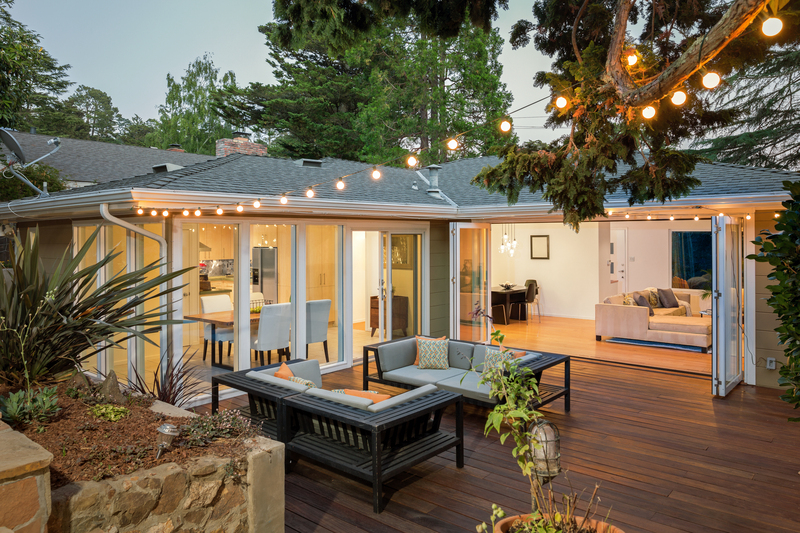Shade Your Garden with Evergreen Climbers: Transform Dark Corners
Posted on 09/09/2025
Shade Your Garden with Evergreen Climbers: Transform Dark Corners
There's something magical about a lush and vibrant garden, but every gardener faces the challenge of managing shady, overlooked corners. These spots can feel barren, dull, and sometimes neglected. However, with a touch of creativity and the right plant choices, you can transform dark corners into enchanting, green havens. Evergreen climbers are the perfect solution to add year-round foliage, color, and texture to any shady spot. In this article, we'll explore how to shade your garden, the best evergreen climbing plants for shade, planting tips, and innovative design ideas to revitalize your garden's gloomiest areas.

Why Choose Evergreen Climbers for Shade?
Evergreen climbers are unique plants that grow vertically, covering fences, walls, arbors, and other garden structures. Unlike deciduous climbers, evergreens retain their foliage all year, ensuring continual beauty and privacy even in winter. Here's why they are a top choice for shady gardens:
- All-season interest: Evergreen climbers ensure greenery, even when most other plants are bare.
- Enhanced biodiversity: Their leaves shelter birds and beneficial insects through all seasons.
- Low-maintenance gardening: Most evergreen climbers are easy to care for once established.
- Versatility: They can be used to decorate fences, pergolas, walls or even as ground covers.
- Natural insulation: These plants help moderate temperatures around your home.
- Privacy and screening: Create secluded spaces without installing expensive fencing.
Evergreen Climbers: The Secret to Shaded Garden Beauty
Dark corners in the garden don't need to remain uninspiring. With the strategic use of shade-tolerant climbers, you can create a tapestry of textures and colors that add depth and life to these neglected areas. These plants also help soften hard landscaping features, making your garden feel more integrated and welcoming.
Top Evergreen Climbers for Shaded Gardens
Not all evergreen climbers thrive in shade, but several species excel in low light, damp, or north-facing conditions. Here are the best evergreens to consider:
1. Hedera helix (English Ivy)
- Ideal for dark corners: This versatile climber thrives in deep shade and adapts to various soils.
- Rich evergreen foliage: Classic green leaves or variegated varieties provide year-round interest.
- Low maintenance: Requires occasional pruning to control growth.
2. Trachelospermum jasminoides (Star Jasmine)
- Partial shade magnet: Grows well in dappled light or morning sun.
- Fragrant summer flowers: Creamy-white blooms fragrance the garden in summer.
- Glossy, dark-green leaves: Stay vibrant even during winter.
3. Lonicera japonica 'Halliana' (Evergreen Honeysuckle)
- Shade-tolerant performer: Handles partial shade and offers flowers for pollinators.
- White-yellow flowers: Sweetly scented and attract bees and butterflies.
- Twining habit: Perfect for fencing and arbors.
4. Pyracantha (Firethorn)
- Evergreen and tough: Handles both sun and partial shade with ease.
- Year-round interest: White spring blossoms followed by orange or red berries through autumn.
- Great for birds: Provides important food and shelter.
5. Euonymus fortunei (Wintercreeper)
- Shade versatility: Thrives in full or partial shade.
- Compact and creeper form: Can be trained up walls or fences as a climber.
- Variegated leaf forms: Yellow and green or white and green varieties for added brightness.
6. Passiflora caerulea (Blue Passionflower)
- Partial shade beauty: Grows well with morning or filtered sunlight.
- Striking flowers: Intricate blue-and-white blooms add tropical flair.
- Evergreen in mild climates: Retains foliage in warmer regions; may shed leaves in harsh winters.
Creative Ways to Use Evergreen Climbers in Shady Spots
Don't just plant and leave! Get creative to maximize the impact of shade-loving climbers in your garden. Here's how:
1. Cover Unsightly Walls and Fences
Do you have brick walls or old fences that look uninviting? Soften hard lines and add texture by planting evergreen climbers at their base. Over time, these plants will climb, cascade, and camouflage less attractive areas.
2. Frame Entrances and Pathways
Utilize shade-tolerant climbers to create inviting green arches over gateways or along garden paths. A living archway not only shades the area but also encourages exploration and a sense of mystery in your garden.
3. Vertical Green Screens for Privacy
Turn a dim, overlooked corner into a secluded retreat using trellises or wire supports. Evergreen climbers act as living screens, shielding you from neighbors and creating microclimates for shaded seating areas.
4. Conceal Utility Areas
If your shade-covered corner hides utility boxes, compost bins, or garden tools, mask them effortlessly with vigorous evergreen climbers for aesthetically pleasing, practical screens.
5. Layering and Underplanting
Boost the sense of abundance by combining your shade-loving climbers with shade-tolerant groundcovers, ferns, or spring bulbs. This layered look creates a lush, multi-dimensional focal point.
Planting Evergreen Climbers in Shady Gardens: Step-by-Step Guide
Ready to breathe life into your dark corners? Follow these key steps:
-
Assess Shade Levels
- Is the corner in deep, full shade (never direct sun), partial shade (2-4 hours sun), or dappled light?
- Select suitable evergreen climbers for the specific shade type in your garden.
-
Prepare the Soil
- Enrich existing soil with compost or well-rotted manure to boost nutrients.
- Ensure good drainage; waterlogged soils hinder root growth for most climbers.
-
Planting & Support
- Install a trellis, arbor, or galvanized wire supports before planting.
- Plant your chosen climber, ensuring the rootball is level with the soil surface.
- Water well and mulch to conserve soil moisture.
-
Ongoing Care
- Keep young plants watered--shade is cool but can be surprisingly dry.
- Prune sparingly: remove dead or damaged stems, and train shoots onto supports.
- Feed annually with balanced organic fertilizer to support lush growth.
Common Challenges & Solutions for Shaded Corners
Shady garden areas often present unique challenges for even experienced gardeners. Here's how to conquer typical problems:
1. Poor Soil and Low Fertility
Shaded pockets can have dry, impoverished soil as tree roots absorb nutrients and moisture. Improve by:
- Adding rich organic matter at planting time and annually.
- Mulching to retain moisture and gradually improve soil texture.
2. Competing Tree Roots
In competition with established trees, shallow-rooted climbers might struggle. Opt for strong, adaptable species like ivy or trainable honeysuckle, and use raised beds if needed.
3. Sparse Foliage in Deep Shade
Even "shade-tolerant" climbers need some light. For extremely dark corners, select the toughest, like Hedera helix, and aid their growth with reflective surfaces (e.g., painted pale walls or mirrors) to bounce more light into the area.
4. Sluggish Growth
Growth can be slow initially as climbers establish. Be patient, water regularly, and avoid heavy fertilizing until the plant is established to prevent weak, spindly shoots.
Combining Evergreen Climbers for Dramatic Impact
For dynamic results, combine different evergreen climbers! Pair broad-leaf types with fine-textured species, or contrast deep green foliage with variegated or colored leaves. Try:
- English Ivy and Star Jasmine: A classic green background punctuated by white fragrant flowers.
- Evergreen Honeysuckle and Euonymus: Layered heights, mixed textures, and seasonal flower interest.
- Pyracantha and Ivy: Wildlife-friendly and perfect for berries and birds in winter.
You can also interplant climbers with shade-loving perennials at ground level, like hostas, hellebores, or pulmonarias, for a cohesive look.
The Environmental Benefits of Shading with Evergreen Climbers
Using evergreens to shade your garden offers more than cosmetic value--they are ecological powerhouses! Benefits include:
- Habitat for wildlife: Birds nest and find shelter, and pollinators benefit from flowers and leaves.
- Air quality improvement: Dense foliage traps dust and pollutants.
- Insulation and cooling: Green walls reduce heat reflection and help stabilize outdoor and indoor temperatures.
- Erosion control: Vigorous roots stabilize sloped or shaded soil, preventing runoff.

Frequently Asked Questions about Evergreen Climbers in Shade
Q: Will evergreen climbers damage my walls?
A: Most evergreen climbers harmlessly attach to walls using aerial roots or twining stems. However, check periodically for buildup or damage on old masonry, and use trellises against delicate or painted surfaces as an extra precaution.
Q: How fast will they grow in the shade?
A: Growth rates depend on species and conditions. Most shade-tolerant evergreens are moderate growers, reaching maturity in 3-5 years with proper care. Ivy and honeysuckle are typically faster than star jasmine or pyracantha.
Q: What is the best time to plant evergreen climbers?
A: Spring or early autumn are ideal, as the soil is moist and plants have time to settle before facing harsh heat or extreme cold.
Q: Can I grow evergreen climbers in containers in shady corners?
A: Yes! Choose large pots with drainage holes, use rich potting mix, and water regularly. Ivy and Euonymus thrive in containers, as does star jasmine in milder climates.
Conclusion: Transform Dark Corners into Lush Retreats with Evergreen Climbers
Transforming shade-filled corners into stunning features is easier than ever with the clever use of evergreen climbing plants. These garden heroes bring year-round charm, create habitats, and solve practical design problems. Whether you want to mask an eyesore, invite wildlife, or simply luxuriate in greenery, there's an evergreen climber for every shady spot. Don't let dark corners go to waste--**plant, nurture, and watch your garden come alive in every season!**
Latest Posts
Master the Art of Gardening with These 9 Tips for Beginners
Exploring the Essence of Container Gardening
Discover 5 low-cost, easy-care garden solutions

